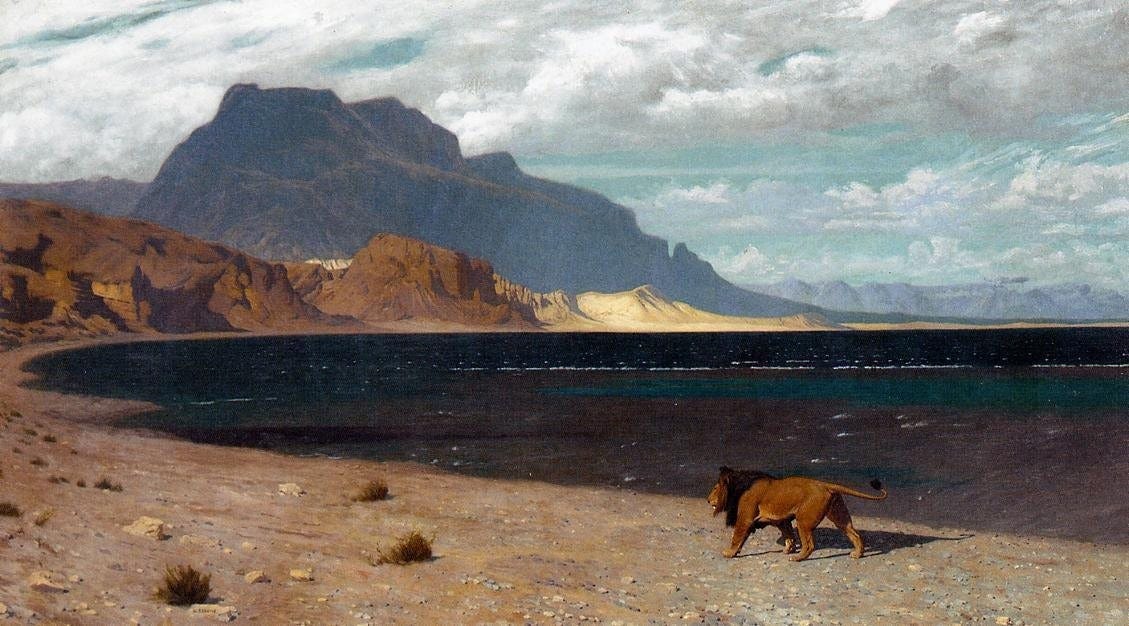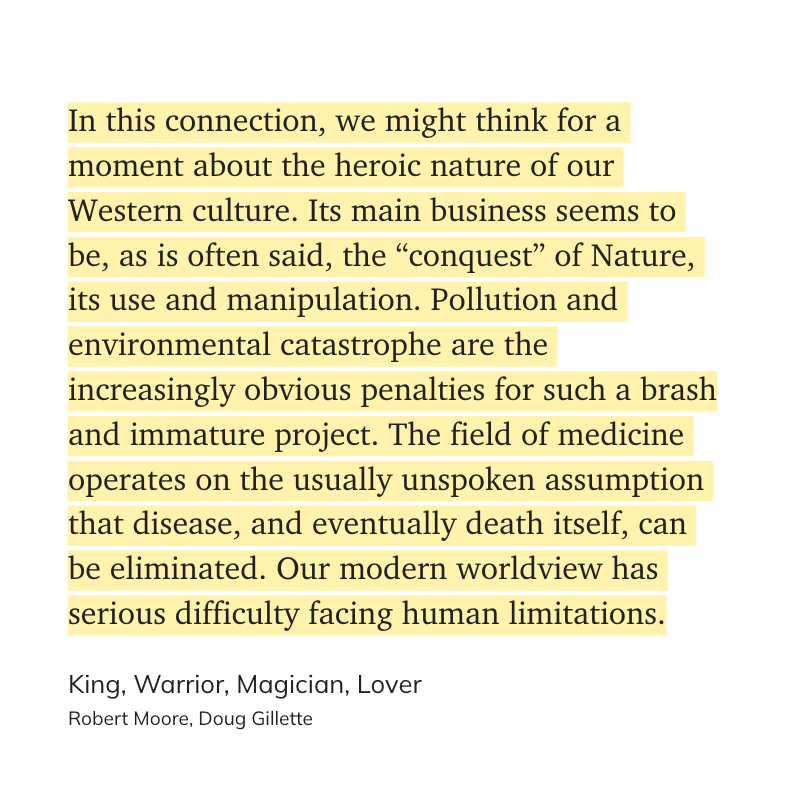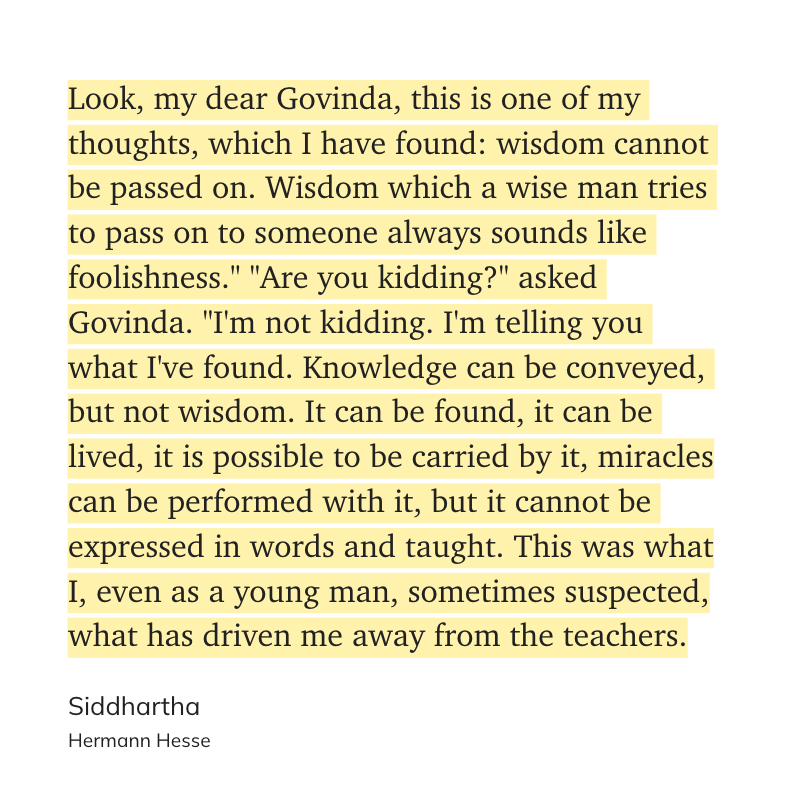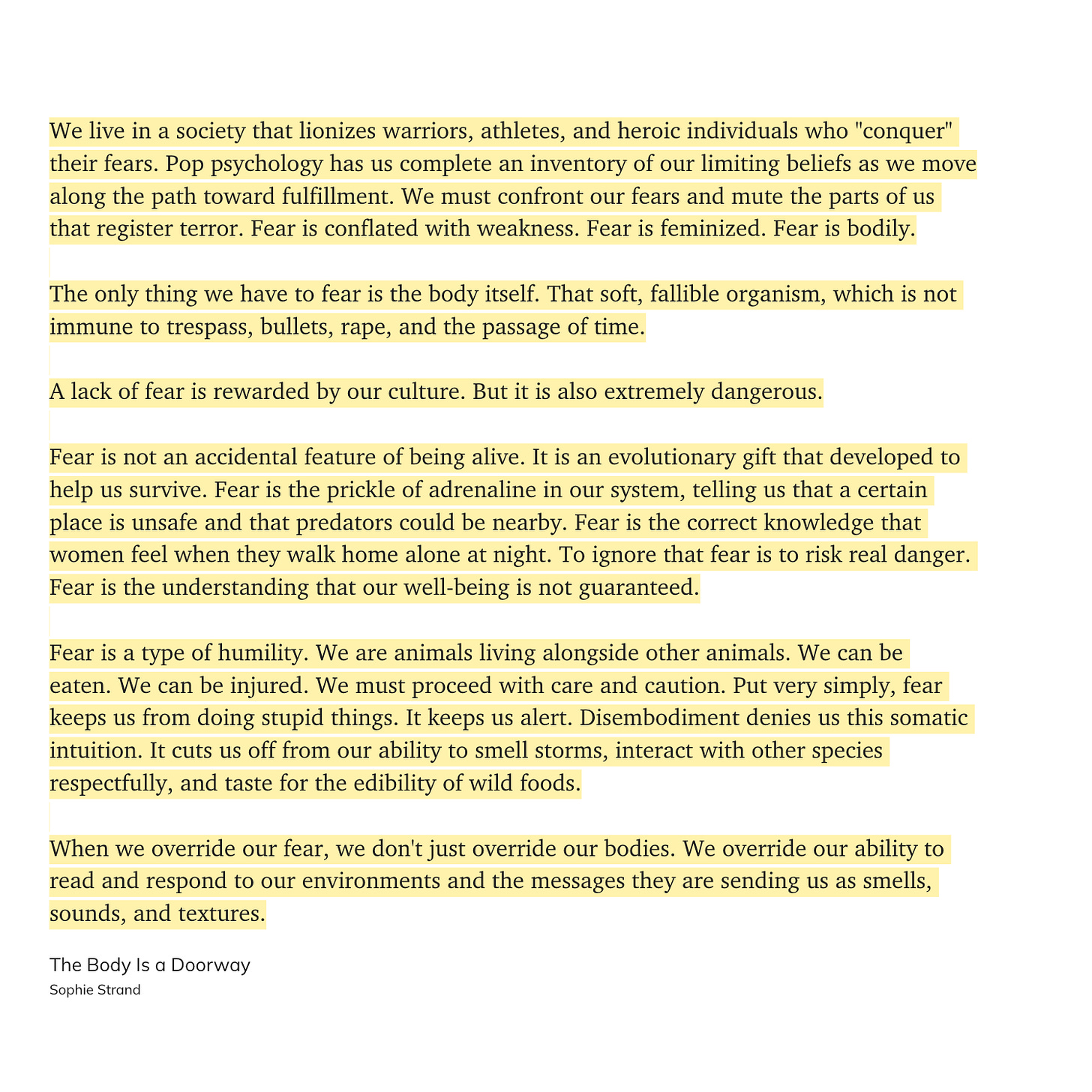fear is the gateway to wisdom
on the heroic life
Welcome to another edition of my weekly newsletter. The theme this week is heroism, weakness, and our relationship to our fear.
One thing that’s come up repeatedly with my male clients is a part of them that despises weakness. I know this part very well, because I also have it within me. This weakness-despising part says, “Hey, if you were more powerful, you could make your life a lot better: you could eliminate all the suffering & uncertainty you feel. But instead, you’re weak.”
Note the hidden irony here: this weakness-despising part is trying desperately to escape all suffering. It is actually trying to run away from suffering, rather than accepting it. So it remains perpetually disempowered.
Much of Western masculine-heroic culture is stuck in a similar bind. Heroism is the desire to make life better for everyone, but that becomes twisted when it comes from a fear of limitation. Our relationship with nature has been poisoned by this perspective. True heroism, the type we need to recover, would work with nature as it is, seeking harmony over conquest.
Fear-based “heroism” seeks to eliminate all limitations. Love-based heroism embraces and expands limitations.
I read Siddhartha for the first time this year, and bemoaned the fact that I didn’t read it in my early twenties: it might’ve had even more of an impact. This passage stuck with me, in the context of my own coaching work. My desire for all my clients is for them to learn to trust in their own wisdom, which begs the question: where does that wisdom come from?
The simple truth is that you get wisdom from having the courage to look at how things really are. So many of us are afraid to see things clearly, since we fear what it might say about ourselves. Perhaps the truth is that we really are broken, or twisted, or cruel… and it’s better to wonder than risk a clear affirmative.
Whatever truth you’re hiding from, no one can teach it to you. You must look at it yourself. You must find the courage to do so. The role of the guide/coach/teacher, then, is to bring you to the cliff and say, “perhaps you could look.” But actually peeking out over the cliff, into the abyss… that’s up to you. That is the heroic act.
And here too, in a passage from one of my favourite living authors, is true heroism. Fear is not something to escape, but something to befriend. How beautiful this framing is, how true. We are disempowered when we try to escape fear; we are empowered when we turn to face it.
Fear is a friend. Fear is an ally. Fear is a teacher. Fear is the gateway to wisdom: if you didn’t have the voice within you screaming “Don’t look in the abyss!!” then nothing would be gained by looking. Fear is necessary.
The question for you, then, is: what kind of relationship do you want to have with your fear?
Do you want to squirm and try to scurry away from it? Or do you want to welcome it in, offer it tea, and help it transform into something else? Do you want to wage a war you cannot win, or do you want to enter into a collaboration?
With love & appreciation,
Scott
P.S. if you’d like support in transforming your relationship to your fear, check out my 1:1 coaching. 🍊






“Hey, if you were more powerful, you could make your life a lot better: you could eliminate all the suffering & uncertainty you feel. But instead, you’re weak.” Feels similar to my internal monologue when it's hellbent on masochism.
Unfortunately, I think you're right about wisdom: it cannot be imparted, unlike knowledge. But others can direct you towards acquiring it. Though, ultimately, you have to face it yourself. Whatever "it" is...
"Fear is not something to escape, but something to befriend." A very helpful reminder.